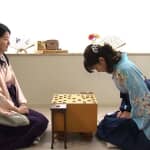Child-raising Shogi 27 March 2017
“I’m glad to have Shogi!” – Five Stories, I-tsu-tsu Staff Version–
Our company, I-tsu-tsu, works every day under our vision, “surprise of real Japanese traditional culture for your child”
Once you become I-tsu-tsu employee, inevitably you will be involved with Shogi deeply, regardless of ability to play Shogi. I am not exceptional.
Today, I interviewed our five team members, asking about the good things that have happened to them through Shogi.
1. Meeting with various people
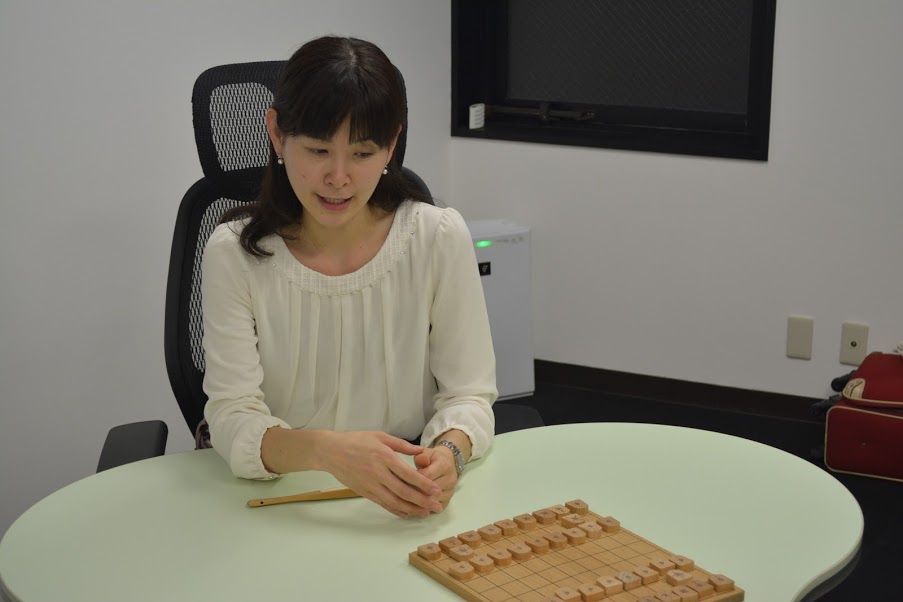
I have encountered many people at any age, sometimes from overseas, having the common interest to Shogi. When I was a child, I played Shogi with my father and many adults, such as teachers at a Shogi hall. Now, as a teacher, I have a lot of opportunities to interact with many children.
Adults and children, both can enjoy playing Shogi. To begin with, it is the good thing of Shogi.
I would like to continue to provide good opportunities for children to play and know Shogi through Shogi lessons or events. Conducting these activities, I would like to pass on time-honored Shogi tradition for the future.
2. A game you can share quality time with your children.
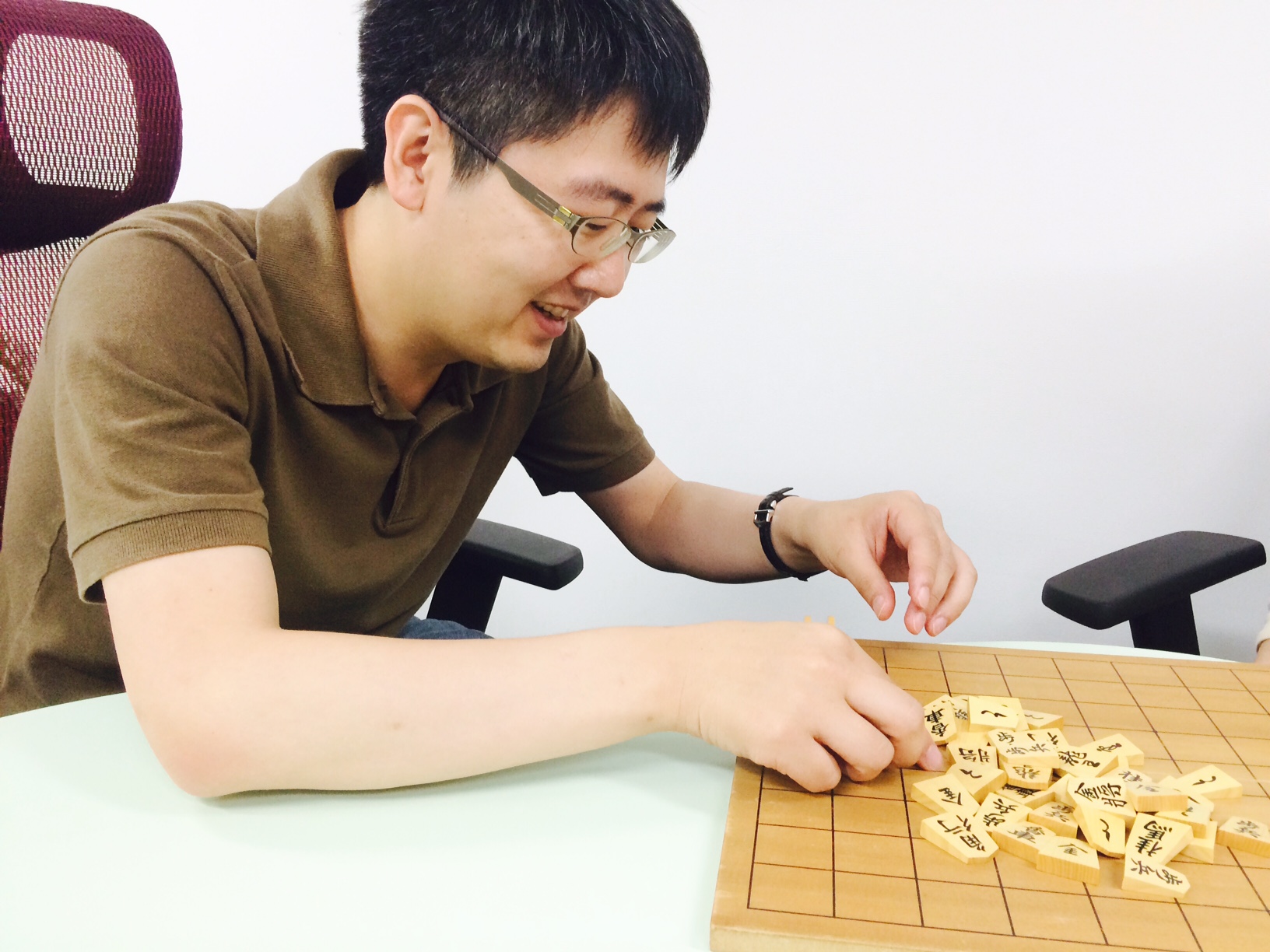
My daughter is four years old now. She is very active, so I feel each day is sports day. With a ball, she runs and bustles everywhere. Playing tag, she becomes amazingly nimble. If I try to quiet down her, I have to become a horse to let her sit astride me.
After experiencing an I-tsu-tsu event, she has come to like Shogi and we sometimes play it together. While we play Shogi, she keeps to be in seiza style (sitting straight) and straighten up. Looking at my cross-legged position, she instructs me to be in seiza. Even with her warning, I realize that is far easier for my body than becoming a horse.
All kidding apart, it is happy to play with my daughter. She is too young to read Kanji (Chinese characters), but she seems to recognize the difference between one and the other of Shogi pieces. Probably, she perceives characters written on pieces as pictures. At first, it was difficult for her to distinguish between Kin (Gold) and Gin (Silver). Before I knew it, she became to be able to tell the difference between them. You may enjoy your child growth.
These days, I follow the instructions from our blogs, which show us the ways to lose a game effectively and sometimes lose a game purposely. When that happens, she gets carried away and laugh heartily, saying “Dad, you are not good at Shogi.” Needless to say, I can’t stop smiling with her words and smile. I do hope my daughter will enjoy the felling of success in many occasions. She shows a proud look on her face every time she wins a Shogi game. I am really happy to look at those expressions, as her father.
3. Shogi connected me to the world.
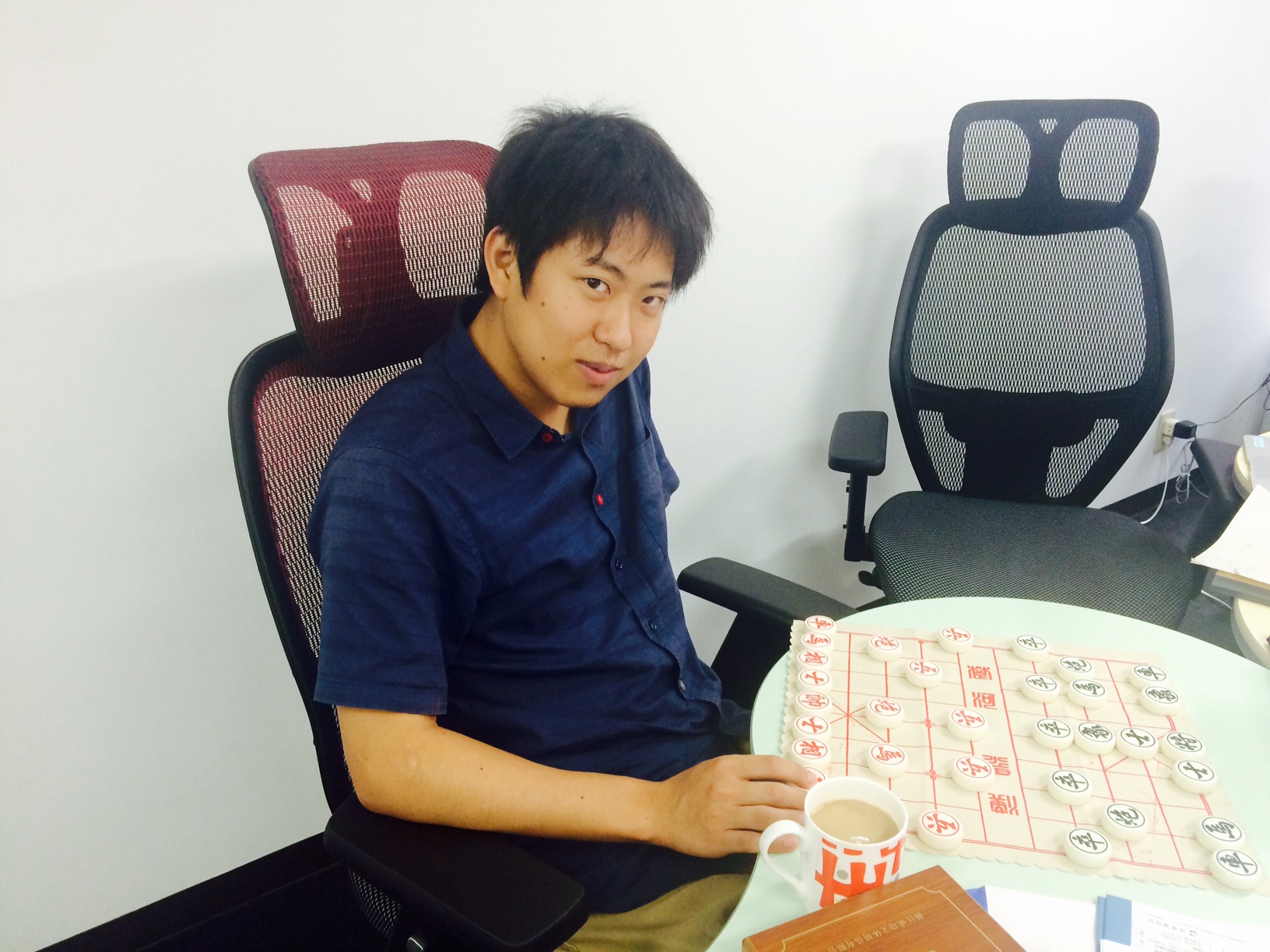
It was three years ago when I started to play Shogi. I didn’t go to Shogi practice hall regularly, but it appealed me a lot and I made time for Shogi, utilizing free time or commute time.
When I visited Taiwan for academic purpose from a grad school, I strongly acknowledged the appreciation of playing Shogi.
I was taught Chines Shogi, Xiangqi, from Chinese local people. Since our communication was not made through words, I didn’t expect I would be able to understand the game. Contrary to my expectation, I was able to understand the game and become used to its rule.
Xiangqi has several differences from Japanese Shogi, such as a river running through the center of the board, and a piece named and written with 象 (Elephant), but at the same time it has many in common. So, it was not difficult to find a sense of affinity.
In return, I introduced Japanese Shogi to Chinese people and they were quick to grasp about it.
There are many board games in the world other than Xiangqi of China that are sharing the same origin: Caturaṅga of India, Janggi of South Korea, or Chess of western countries.
The knowledge of Shogi would act as a liaison to communicate with people all over the world, if we could exchange own knowledge of board games respectively. Based on my experience in Taiwan, I suddenly recalled this.
A person who played Xiangqi and Shogi with me is still one of my very important friends in academic and entertainment fields.
4. Frustration was my drive. I bounced back and gained perseverance.
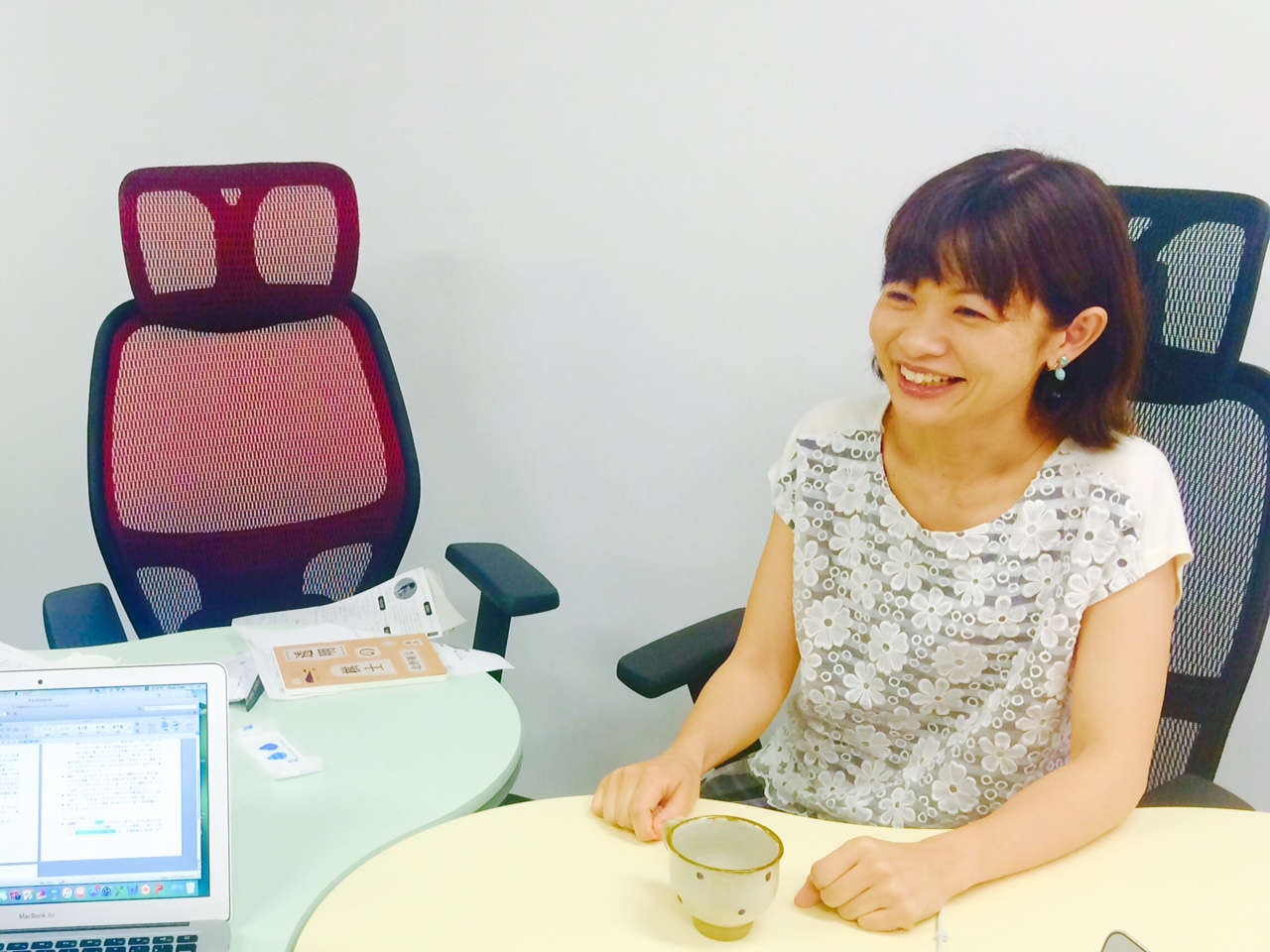
This is my friend’s story.
She has a 10-year-old boy. It was the last May, during a Golden week so to speak in Japanese, when he played Shogi for the first time. His father who works away from a family returned to home temporarily, and taught Shogi to him.
The reaction that the boy showed was very good. “Shogi is as interesting as DS games!”, the boy said.
Of course, the father was very glad to see the boy’s reaction, and his grandfather who was already a Shogi fun was also very happy to know the grandchild’s starting Shogi and gifted a proper Shogi board and pieces (Until then, the boy had used a set of small magnetic board and pieces.)
The boy developed his interest to Shogi and started to go to a practice hall. At that moment, he had already had classes after school, such as a music lesson, a swimming class, and a ball class. Compared to those existing lessons, with a Shogi lesson there was a great change in his attitude which his mother had hardly ever noticed before.
“He has come to insist on winning or losing,” his mother said. Since the boy had not cared much about them, even after losing a dodge ball game he came back home expressing his enjoyments of the game, but not frustration. She always felt irritated with that and wanted him to experience more frustrating feelings and bounced back from it.
She happily talked to me, in Shogi class, there is far smaller children than her son. When he is beaten by that small child, he comes home expressing strong frustration!”
5. You may make several hypotheses.
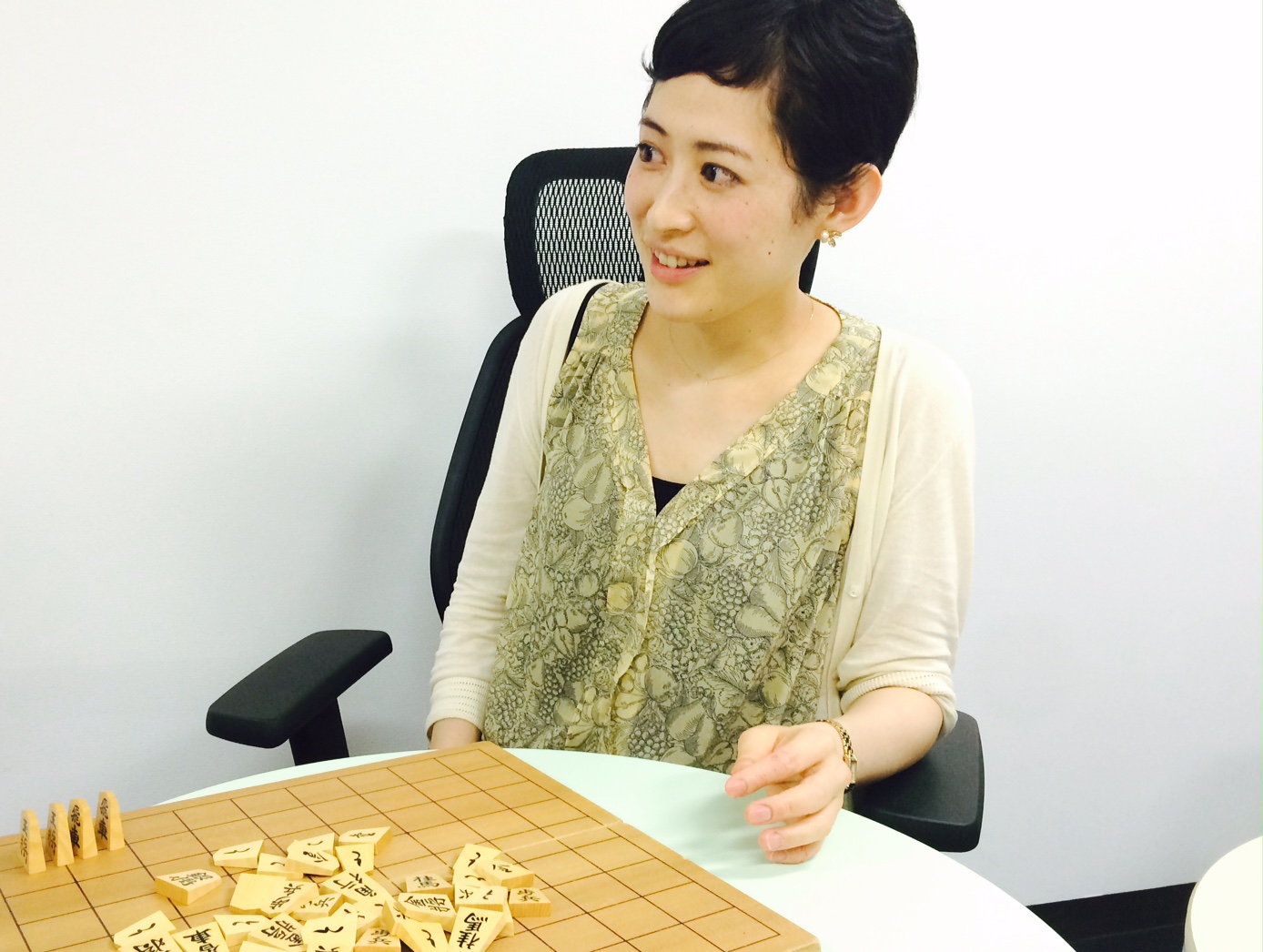
My father is a professor in Science and has enjoyed Shogi as his hobby. He often says that Shogi is similar to experiment.
When you conduct an experiment, nobody knows the result of it. You may get well what I am talking, remembering the science class in your school days.
When your experiment fails, the most important thing is to make hypotheses for the next; what was the wrong and what kind of process I should take for the next successful experiment.
Playing Shogi improved my father’s insight to make useful hypotheses for the better. Even with unsuccessful experiment, good ideas for the next have sprung up one after the next in his mind, he said.
In experiment case, you need to consider your next step after getting the result of the experiment. On the other hand, in Shogi, you need to plan the next strategy after your opponent’s movement. Indeed, both Shogi and experiment might have something in common.
Like in a Shogi game, there are some crucial stages in experiment situation, Father said. According to him, he acquired intuition to read the state in an experiment, such as the one in which you need to be very careful or the other in which you should be without any caution to play.
Now, what do you think of?
We have told that playing Shogi could improve your thinking power via our blogs. It seems that there are more advantages in playing Shogi.
Incidentally, I have started to learn and play Shogi, reading books and Mangas and enjoying games. Through Shogi, I do hope someday I will have good communications with people overseas or to create various hypotheses and ideas.

